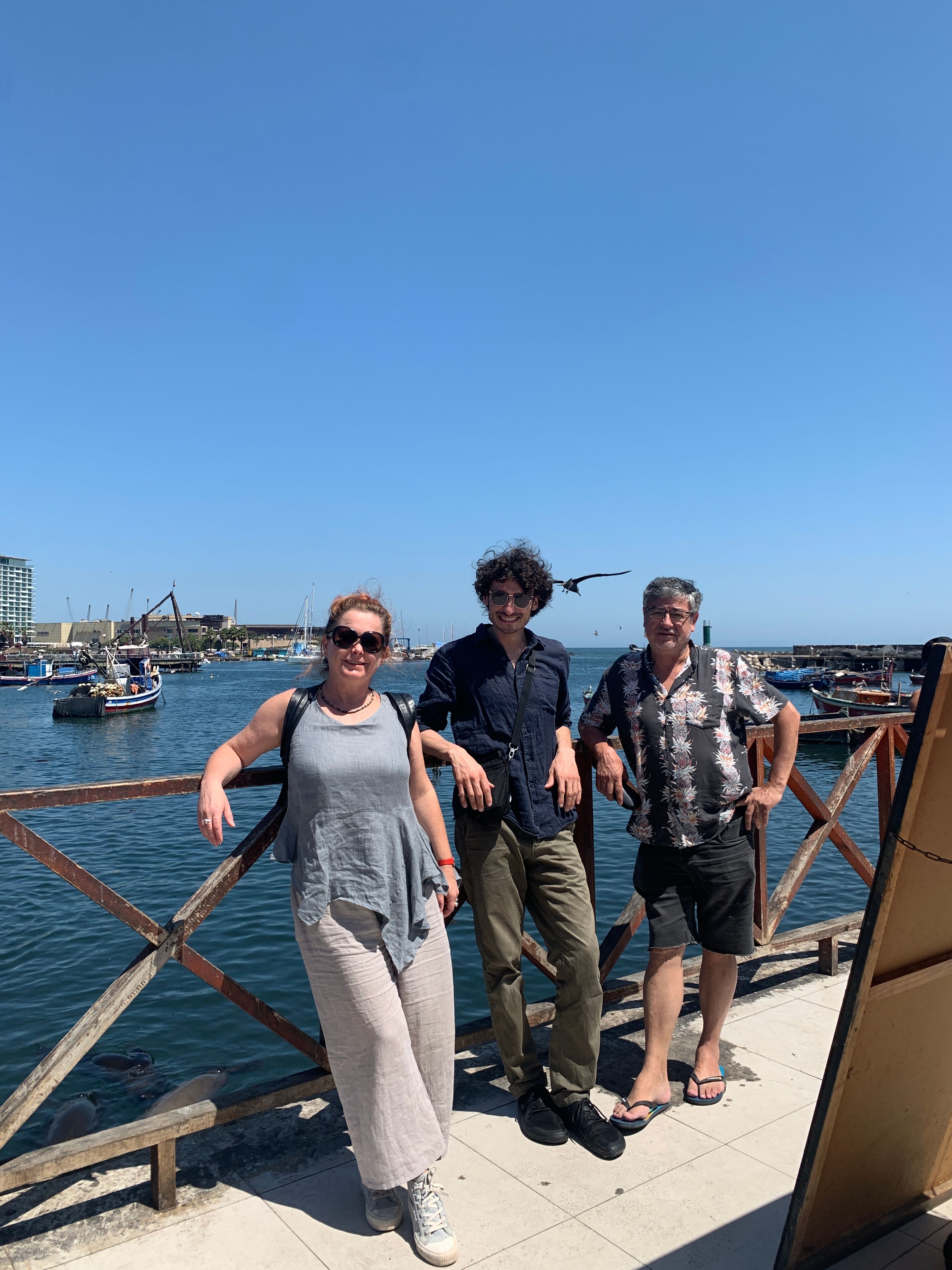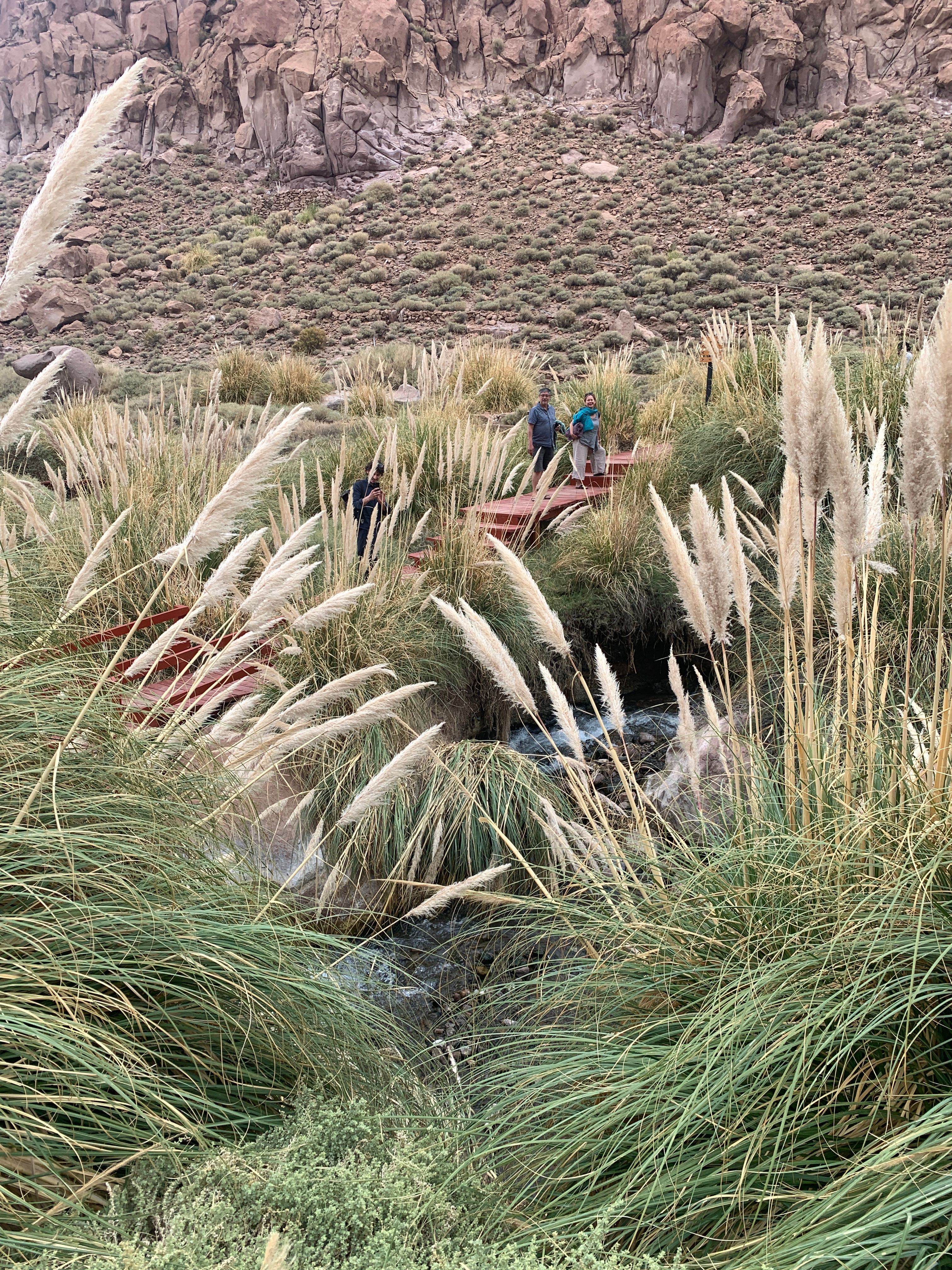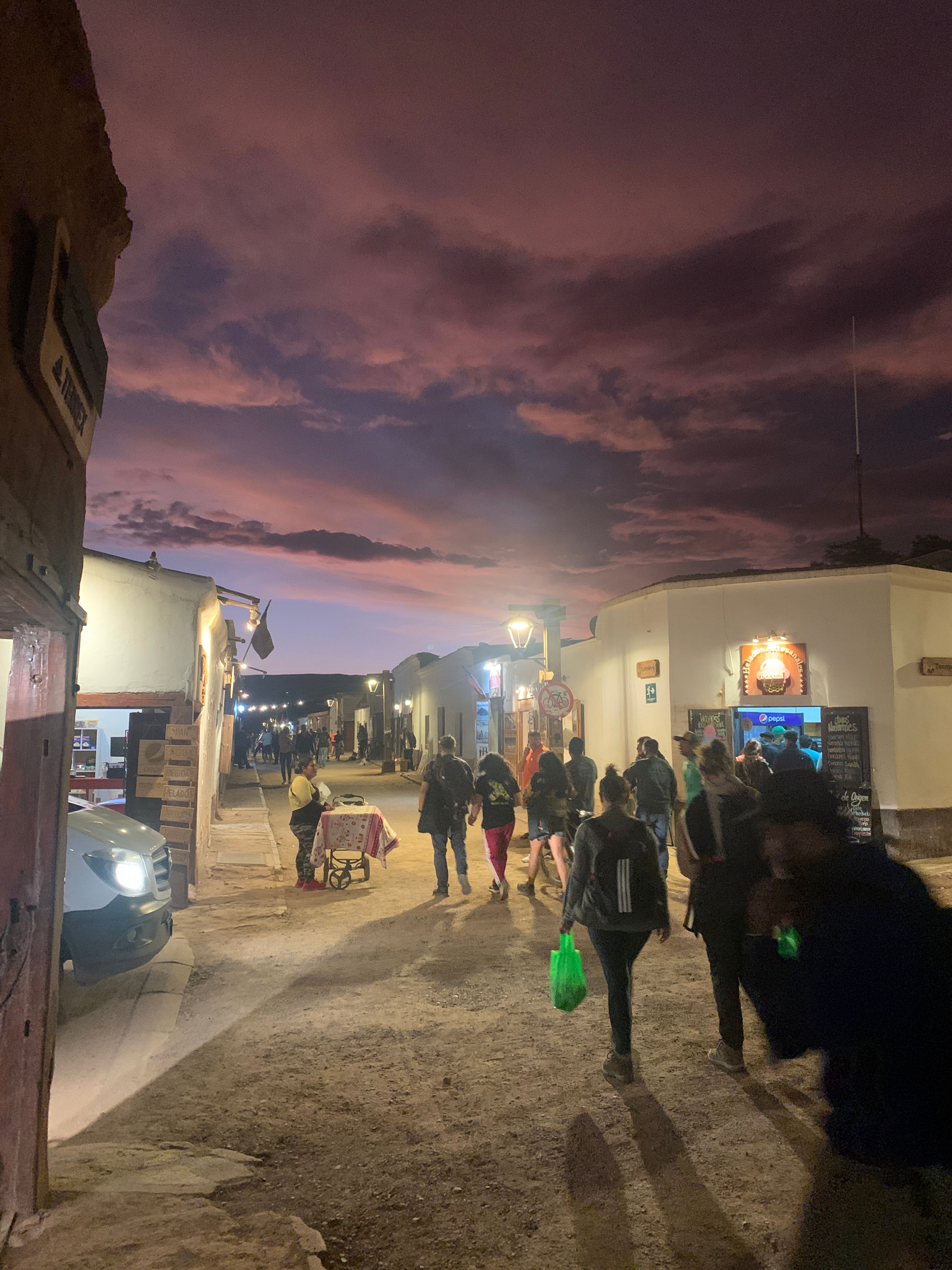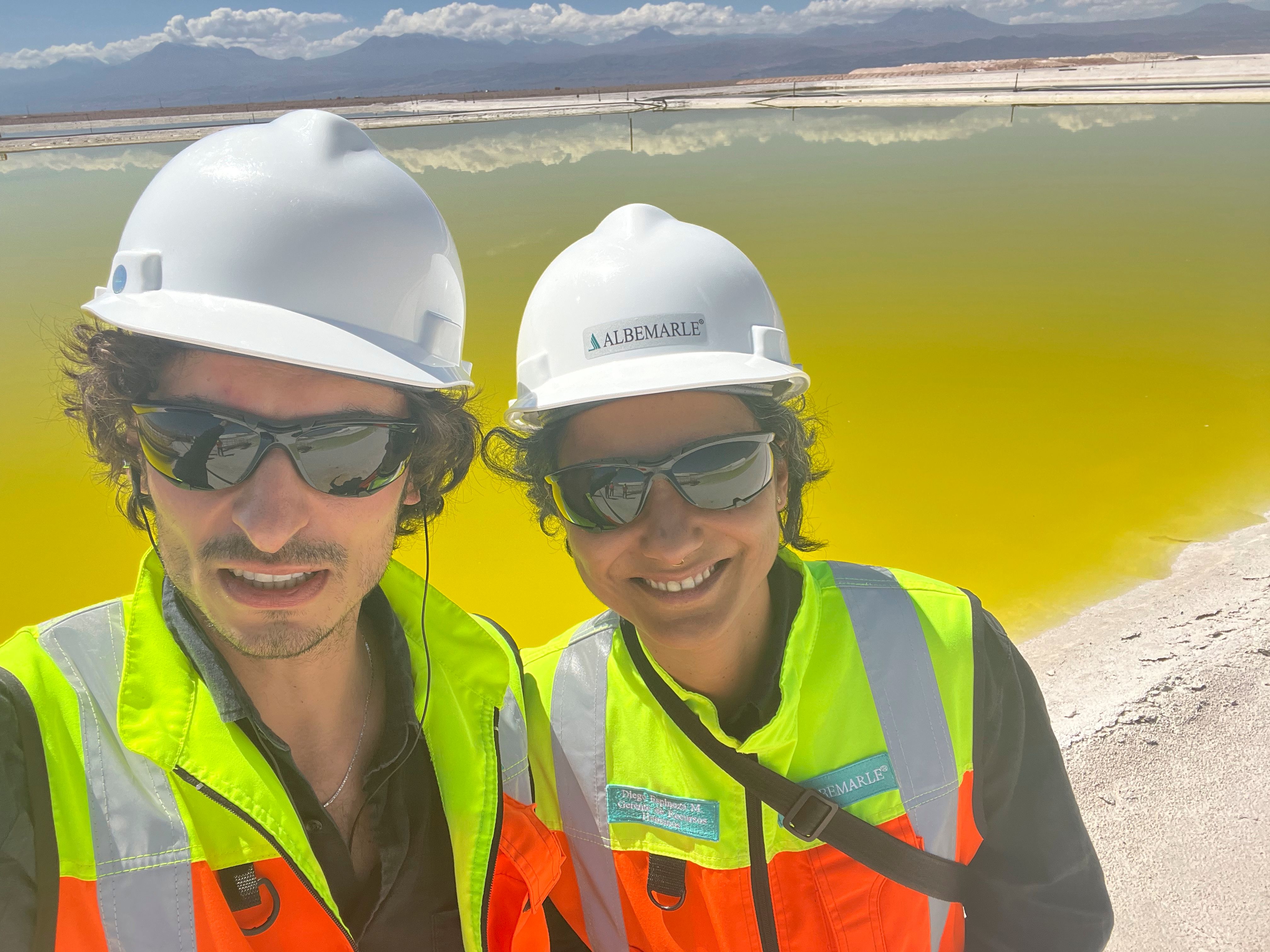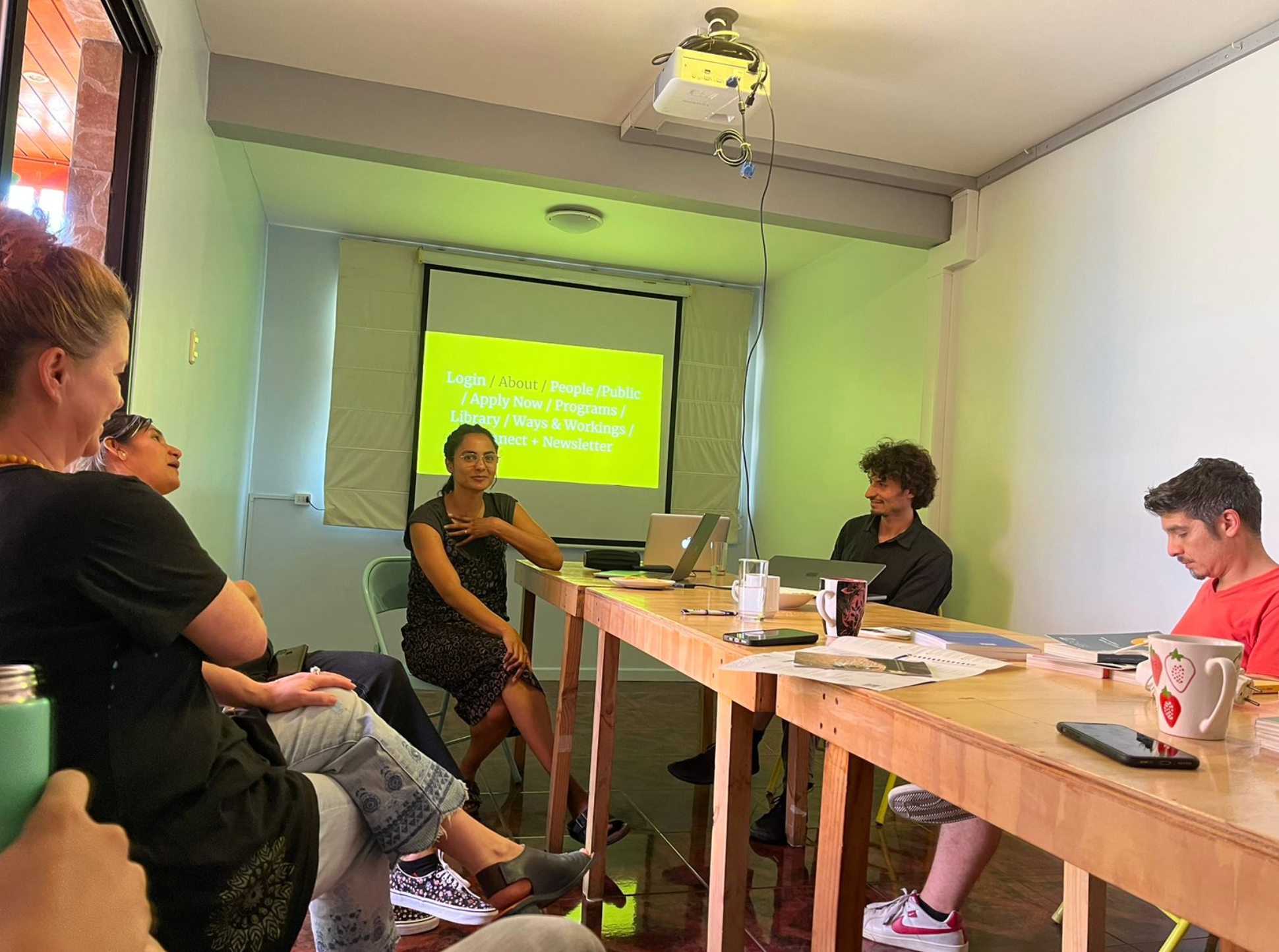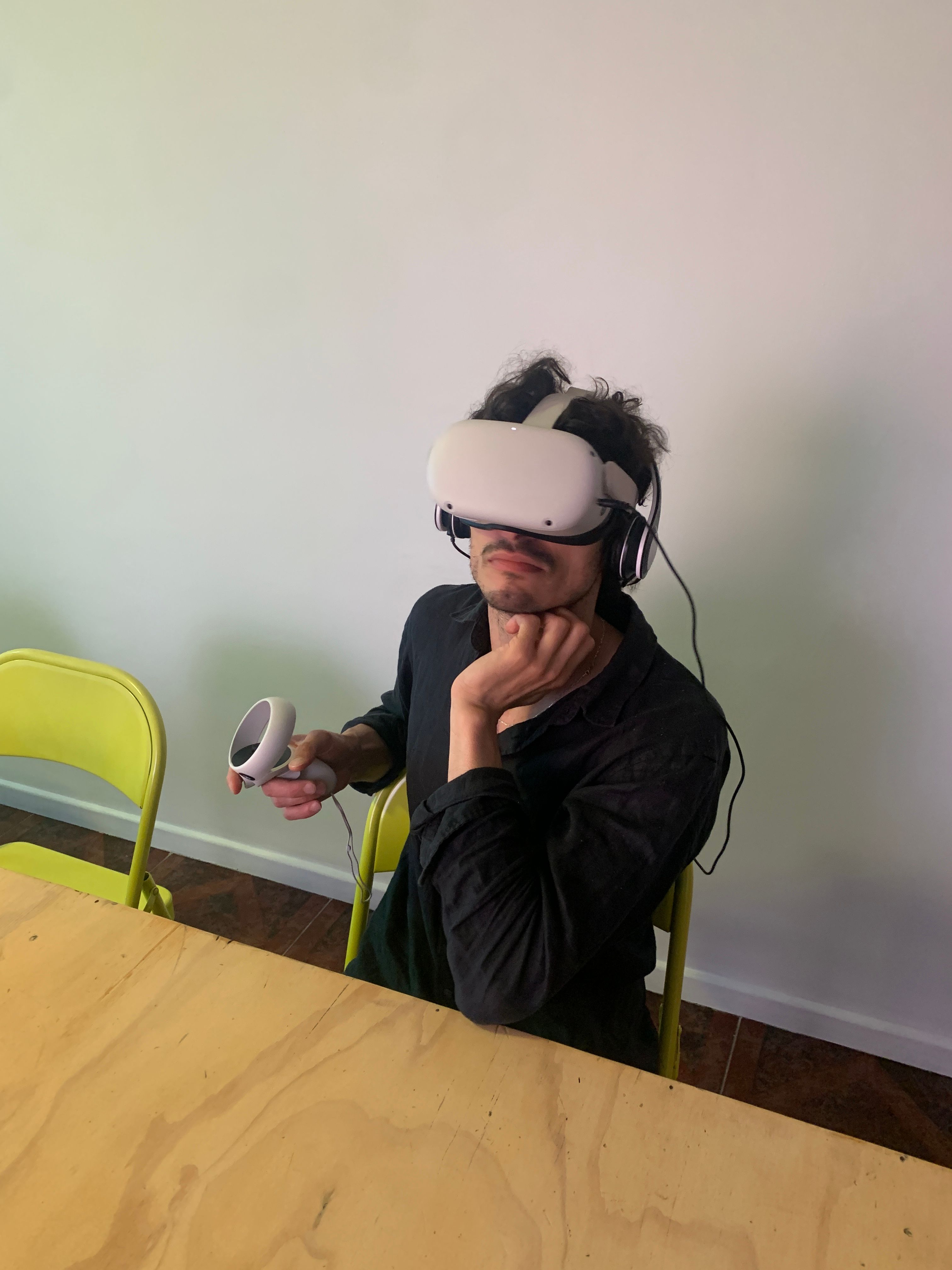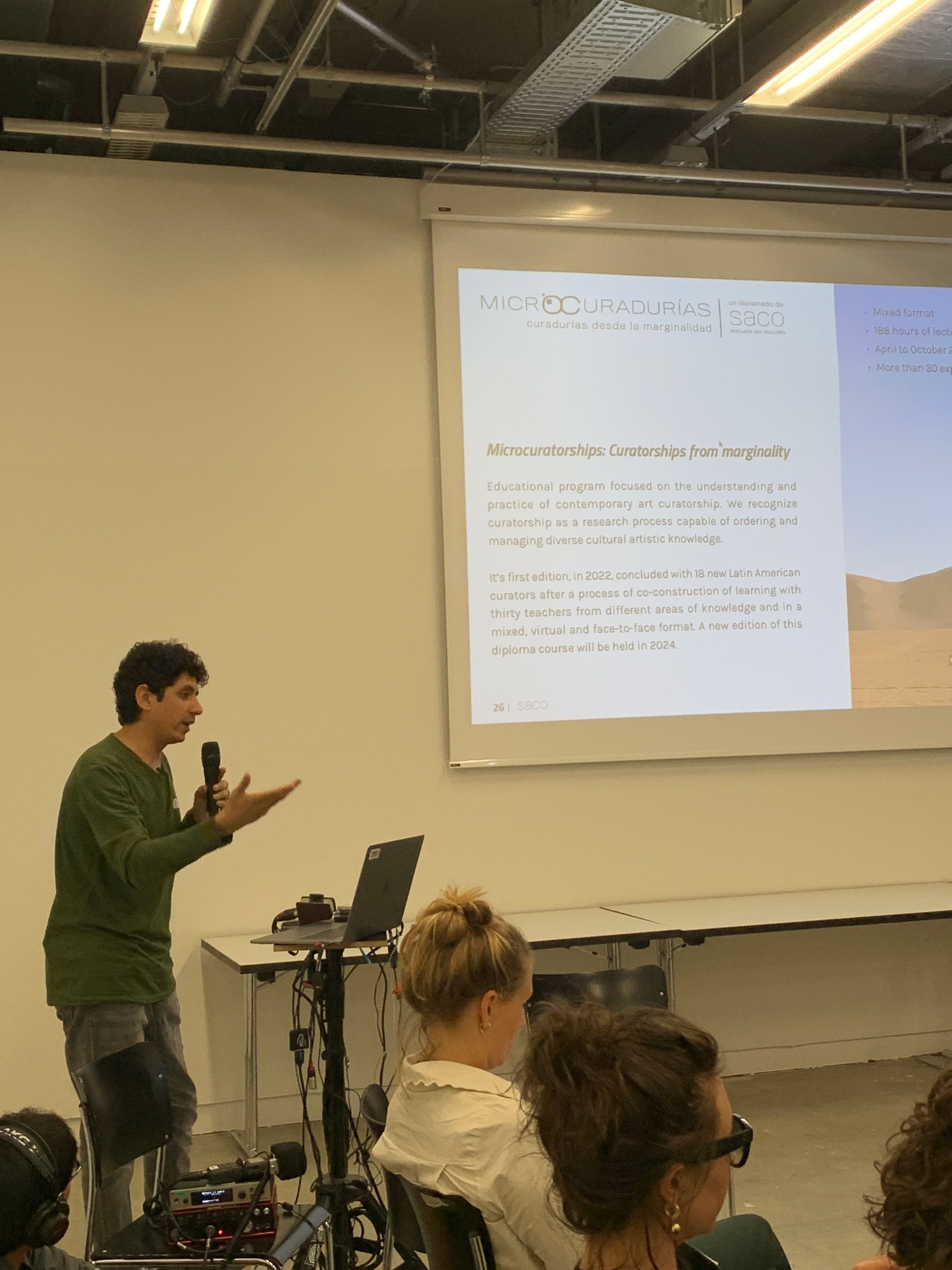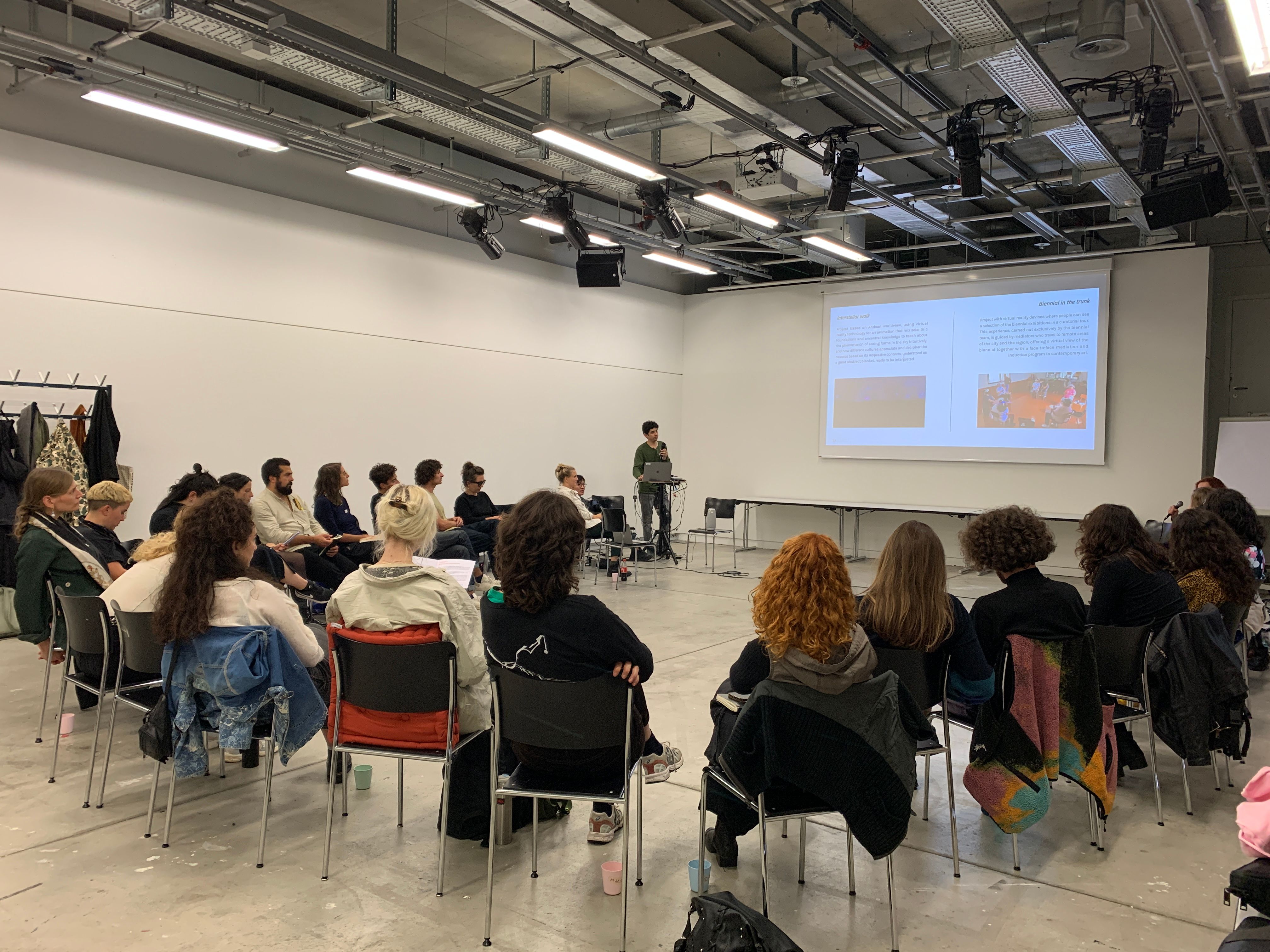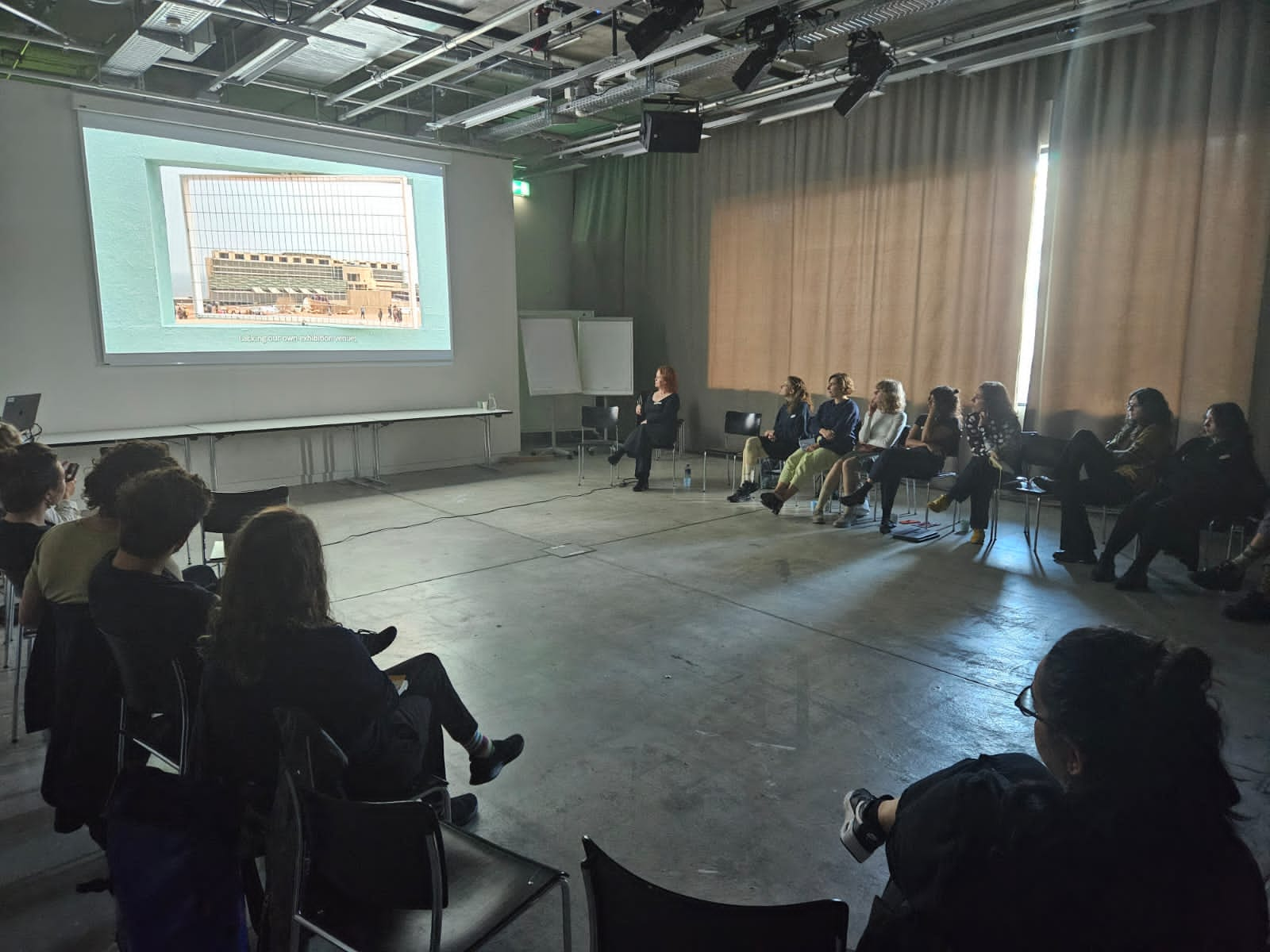The project sought to increase the flow, dialogue, and exchange of experiences between curators and artists from Switzerland and the South American Altiplano, connecting with specific territories through artistic residencies. Six Latin American projects were selected in the "To-gather" call from the Swiss Foundation for Culture Pro Helvetia, a collaboration program between arts professionals and cultural organizations and institutions. The objective was to promote spaces for critical reflection on the current situation, where ideas could be shared to propose more equitable forms of exchange between cultures and contexts, allowing for experimentation with new formats of collaborative work.
In March 2023, Chantelle Lue and Gabriel Hensche were welcomed to the Instituto Superior Latinoamericano de Arte (ISLA) as part of the School of Commons (SoC) team.Their visit was made possible by the second stage of the "To-gather" program, aimed at strengthening the exchange between curators, organizers, and artists from Switzerland and the Altiplano of South America.
"Everything during this experience felt like being on a different scale—the landscape, the climate, the challenges. Coming back to Europe was like entering a dollhouse. The deep conversations we shared with the members of the SACO team and the incredible program they prepared for us. These exchanges, impressions, and the ritual of the Chango people will certainly stay with me for a lifetime," said Gabriel Hensche.
During their stay at ISLA, they observed the work carried out by the biennial, and opportunities for dialogue were created between the work teams, allowing both groups to reflect on new ways of working around art and education. "I think it was very important to create and maintain these types of alliances. Not only because of the potential collaborations that could arise, but also because by visiting another organization that has similar values and goals but works in a completely different context, you gain a new perspective on your own organization and way of working," added Gabriel.
During their visit to the region, they visited the Salar de Atacama, the Albemarle lithium plant, the San Pedro de Atacama Archaeological Museum, and Caleta Abtao, accompanied by SACO, where they participated in the closing ceremony of the Local Memory and Family Trajectories of the Chango People project.
